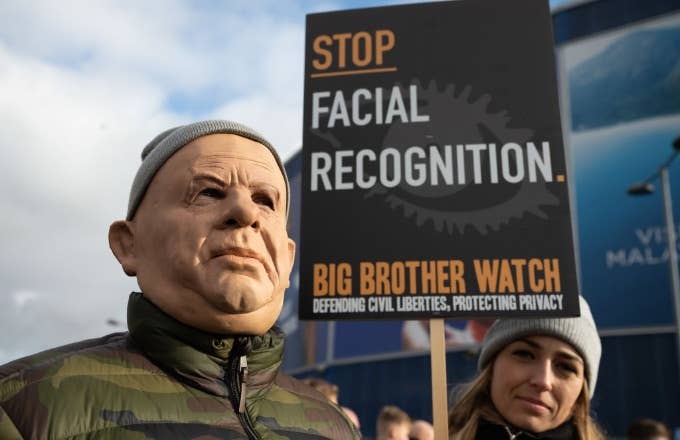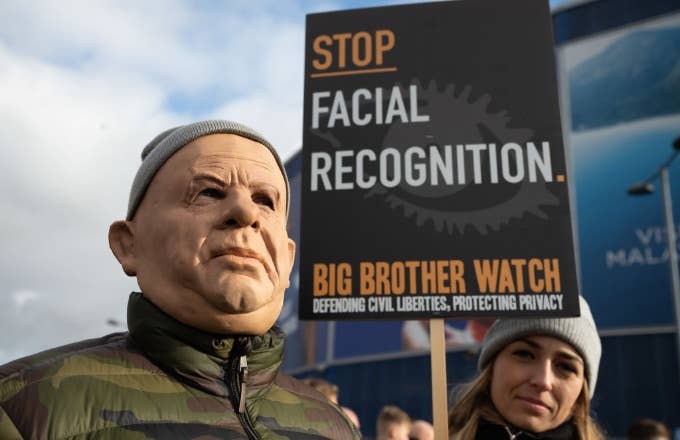
Over the past year, more than 600 law enforcement agencies have started utilizing a facial recognition app developed by the "tiny company" Clearview AI. The privacy-poisoning app, which allows users to potentially match a name to a face within seconds, is the subject of a recent New York Timesprofile by Kashmir Hill that outlines just how serious the implications of such nefarious tech can be.
Hoan Ton-That (a tech figure and, briefly, a model) and Richard Schwartz (a former Giuliani aide) founded the Clearview company, which is reported as being financially backed by Peter Thiel. Thiel, of course, is known for his involvement with Facebook.
Though reps from the department declined to say anything beyond confirming that they had tested the app, the Indiana State Police are credited in the article as being Clearview's "first paying customer."
The app—which is also revealed in the report as being tried out by the FBI and DHS—received public attention late last year when a woman was charged with grand theft after a surveillance footage screenshot was uploaded to the app. That photo brought prosecutors to the woman's Facebook page, with an identifying tattoo ultimately being spotted in the surveillance footage shot and multiple FB uploads.
Matches are found a company-estimated 75 percent of the time, per the report.
In a follow-up piece, Hill looked back on the process of researching and writing the front page Clearview story, remarking that it all began when he was informed of an app he initially recognized as one "doing what many had feared" for some time now.
"Clearview stuck out because it claimed to be scraping social media sites and the open web instead of using mugshots or DMV photos, as was the norm with the other vendors," Hill pointed out.
The Clearview deep-dive is merely the latest entry in the saga of our deteriorating hold on personal privacy. Facebook, an arguable cesspool and frequently mentioned topic in the ongoing privacy discourse, followed up its announcement of auto-expiring messages last March with some immediately trashed riffing from co-founder Mark Zuckerberg.
"I know that we don't exactly have the strongest reputation on privacy right now, to put it lightly, but I'm committed to doing this well and we plan to do this in the way that we've developed WhatsApp," Zuckerberg said during a two-day developers conference last May, ultimately conjuring the sound of crickets in heads worldwide.

